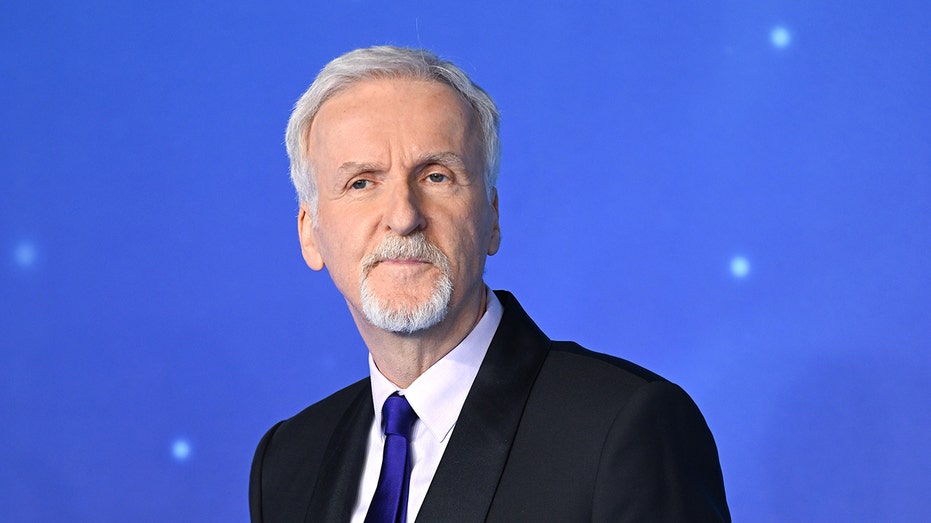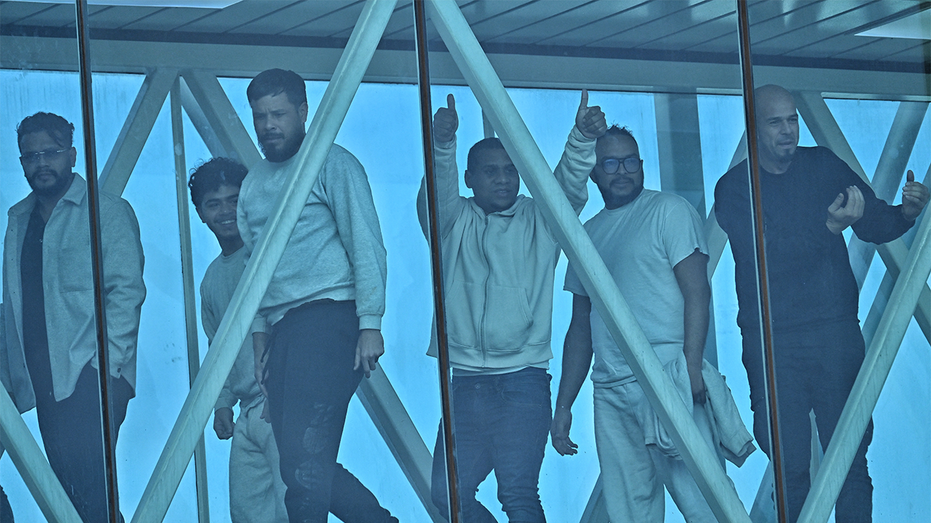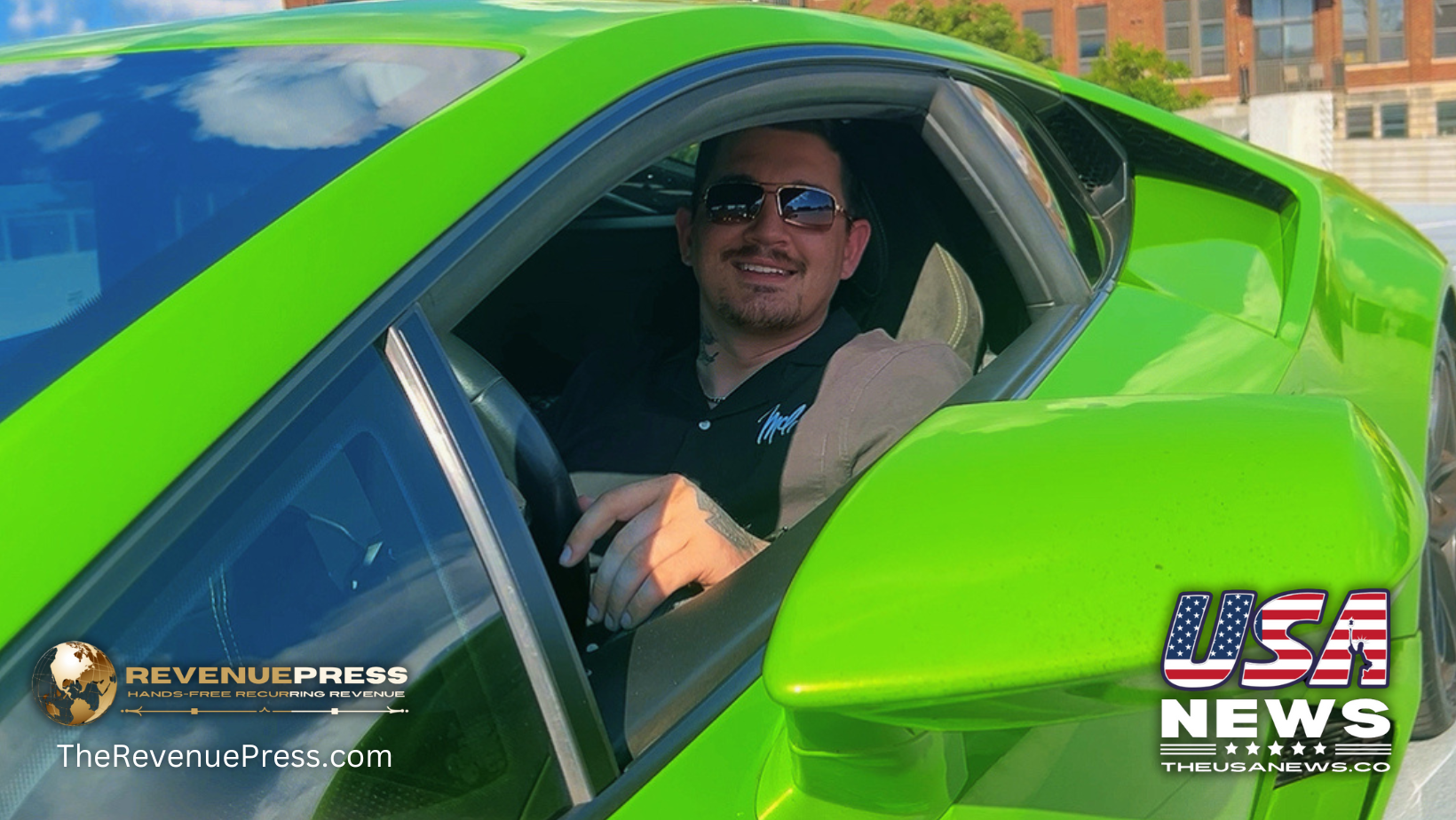James Cameron’s stance on artificial intelligence has evolved over the past few years, and he feels Hollywood needs to embrace it in a few different ways.
Cameron joined the board of directors for Stability AI last year, explaining his decision on the “Boz to the Future” podcast last week.
“The goal was to understand the space, to understand what’s on the minds of the developers,” he said. “What are they targeting? What’s their development cycle? How much resources you have to throw at it to create a new model that does a purpose-built thing, and my goal was to try to integrate it into a VFX workflow.”
He continued by saying the shift to AI is a necessary one.
WHAT IS ARTIFICIAL INTELLIGENCE (AI)?
“And it’s not just hypothetical. We have to. If we want to continue to see the kinds of movies that I’ve always loved and that I like to make and that I will go to see – ‘Dune,’ ‘Dune: Part Two’ or one of my films or big effects-heavy, CG-heavy films – we’ve got to figure out how to cut the cost of that in half.
“Now that’s not about laying off half the staff at a VFX company. That’s about doubling their speed to completion on a given shot, so your cadence is faster and your throughput cycle is faster, and artists get to move on and do other cool things and then other cool things, right? That’s my sort of vision for that.”
Cameron doesn’t think films are ultimately “a big target” for companies like OpenAI.
“Their goal is not to make GenAI movies. We’re a little wart on their butt,” he laughed.
“Movies are just a tiny application, tiny use case, and it’s too tiny right now. That’s the problem. It’s going to be smaller, boutique-type GenAI developer groups that I can get the attention of and say, ‘Hey, I’ve got a problem here, it’s called rotoscope,’ or it’s called this or that. How do I outpaint, upscale, whatever needs to be done in a workflow that already exists that’s CG-based? And there are answers.”
ARNOLD SCHWARZENEGGER CLAIMS AI FUTURE FROM ‘TERMINATOR’ FRANCHISE IS ‘HERE TODAY’
Rotoscoping is a task involving drawing or tracing live-action footage frame by frame.
Cameron said people don’t get into filmmaking and VFX to do “the underwater needlepoint of roto[scoping]. And there are a lot of tasks like that,” like changing pieces frame by frame for motion capture that he feels AI can make quicker and more cost effective.”
“It’s all common sense, right? All you have to do is maybe something like feed in a couple million images of the real world and have a dumb algorithm” figure it out, he said.
Cameron previously denounced the use of AI in 2023, citing his 1984 film “The Terminator” as a warning.
CLICK HERE TO SIGN UP FOR THE ENTERTAINMENT NEWSLETTER
“I think the weaponization of AI is the biggest danger,” he told Canadian CTV at the time.
“I think that we will get into the equivalent of a nuclear arms race with AI, and if we don’t build it, the other guys are for sure going to build it, and so then it’ll escalate,” Cameron said.
He continued, “You could imagine an AI in a combat theater, the whole thing just being fought by the computers at a speed humans can no longer intercede, and you have no ability to deescalate.”
“I warned you guys in 1984, and you didn’t listen,” Cameron said, referring to the plot of the film and its sequels featuring a sentient AI destroying humanity.
At the time, Cameron said he wasn’t concerned about AI replacing creatives, saying, “It’s never an issue of who wrote it, it’s a question of is it a good story?”
“I just don’t personally believe that a disembodied mind that’s just regurgitating what other embodied minds have said – about the life that they’ve had, about love, about lying, about fear, about mortality – and just put it all together into a word salad and then regurgitate it … I don’t believe that have something that’s going to move an audience,” he said.
On the “Boz to the Future” podcast, Cameron downplayed the negative feelings much of the entertainment industry has shared about generative AI.
“A lot of the hesitation in Hollywood and entertainment in general are issues of the source material for the training data and who deserves what and copyright protection and all that sort of thing, and I think people are looking at it all wrong, personally,” he said.
LIKE WHAT YOU’RE READING? CLICK HERE FOR MORE ENTERTAINMENT NEWS
He explained that everyone’s brains already work essentially like an AI: “You’re creating a model as you go through life to process quickly through that model every new situation that comes on. You don’t say, ‘Wait a second, I’m going to go back.’ … It doesn’t work that way.”
“My point is, as a screenwriter, as a filmmaker, if I exactly copy ‘Star Wars,’ I’ll get sued. Actually, I won’t even get that far. Everybody will say it’s too much like ‘Star Wars,’ we’re going to get sued. I won’t even get the money. As a screenwriter, you have a sort of built-in ethical filter that says, ‘I know my sources, I know what I like. I know what I’m emulating. I also know I have to move it far enough away that it’s my own independent creation.’”
Cameron agreed that there needs to be management of AI “from a legal perspective,” but he thinks the focus should be on what the output is and if it’s being monetized versus the input.
“You can’t control my input. You can’t tell me what to view and what to see and where to go. My input is whatever I choose it to be and whatever has accumulated throughout my life. My output should be judged on whether it’s too close or plagiaristic,” he said, acknowledging that people are considering “the monetization possibilities of libraries and all that sort of thing.”
Some companies are already allowing AI companies access to their back catalogs.
Lionsgate, the studio behind films like “The Hunger Games” and “Twilight,” partnered with AI research company Runway last September for the “creation and training of a new AI model, customized to Lionsgate’s proprietary portfolio of film and television content,” according to a statement from the company at the time.
Cameron admitted he doesn’t love the idea of someone using an AI to mimic him.
“I think we should discourage the text prompt that says ‘in the style of James Cameron’ or in the style of ‘Zac Snyder’ or ‘in the style of.’ Make up your own style. That makes me a little bit queasy,” he said. “But on the other hand, it’s kind of cool to have an ‘in the style of’ as part of a text prompt.”
TRUMP URGED BY BEN STILLER, PAUL MCCARTNEY AND HUNDREDS OF STARS TO PROTECT AI COPYRIGHT RULES
The trend of generating images in specific styles has taken off on social media, creating controversy over copyright and originality.
Most recently, people were regularly sharing images generated in the style of Japanese animation company Studio Ghibli, further fueling the debate.
But Cameron didn’t see an issue.
“How is Studio Ghibli harmed by fan art?” Cameron asked on the podcast, noting fan art has been around “forever.”
“You can’t stop fan art, you don’t want to stop fan art. It’s an expression. It’s them echoing back something they responded to, it makes them feel participatory in that universe. These things should be encouraged.”
However, he drew the line at financial gain.
“If somebody goes out and tries to make money off it in a way that harms Studio Ghibli and is provable, I think that’s where you have to draw the line.”
He continued, “How is that any different than selling a T-shirt and on the T-shirt is an image of Luke Skywalker? You can’t do that. LucasArts can do that. You can’t do that. That’s piracy. It’s going to get shut down. However, if you just wanted to wear one and express your fandom for ‘Star Wars,’ you’re not harming anything.”

















Leave a Reply